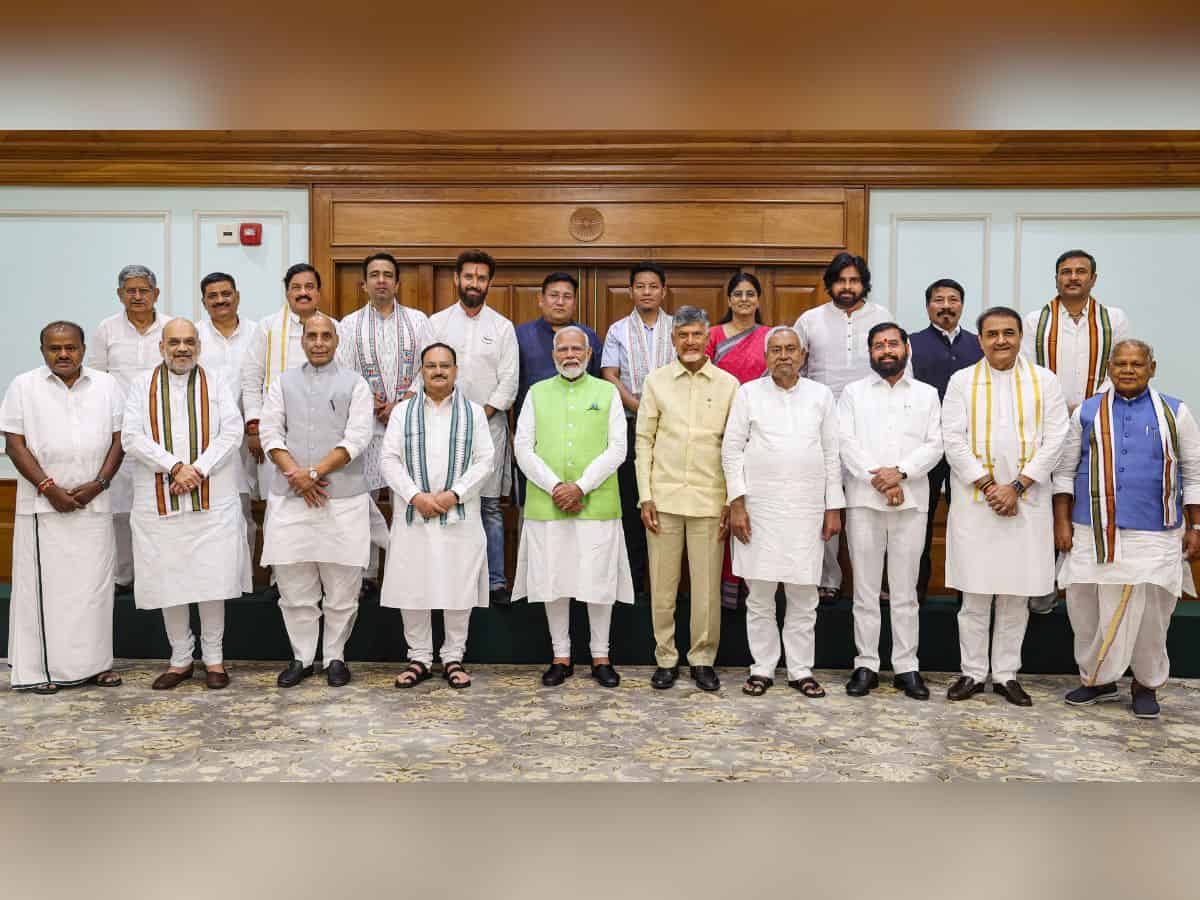
The recent swearing-in of Nara Chandrababu Naidu as Andhra Pradesh’s Chief Minister was a significant event for Naidu personally, his Party, and Indian politics. Prime Minister Narendra Modi and other top BJP leaders witnessed the 74-year-old politician taking the oath for the fourth time, marking a significant political comeback.
Despite being marginalised in state and national politics for over two decades, Naidu is grateful for his new role. He has once again proven that one should never underestimate a politician until they are out of the game.
The triumphant return of Naidu as the Chief Minister, along with the emergence of his Party, Telugu Desam as the second largest group in the current NDA government, signifies a shift in power dynamics.
A year ago, Babu’s predecessor, Jagan Mohan Reddy, was comfortably placed to win another term. Then, the opposition was divided. Pawan Kalyan was not with the TDP, and the BJP was still deciding whether to let the TDP join the NDA coalition again. Babu was accused of corruption, and TDP workers felt disheartened.
Comeback factors
Several factors contributed to Naidu’s comeback. Apart from the anti-incumbency sentiment, the caste coalition of Pawan Kalyan’s Janasena, the BJP, and the TDP played a crucial role. Jagan’s neglect of infrastructure and agriculture also negatively affected the people, further contributing to Naidu’s resurgence.
Naidu has been a survivor. He started his political career as a junior minister in 1978 and has since held various positions in the Telugu Desam Party (TDP). He has served as the Chief Minister of Andhra Pradesh multiple times, overseeing significant development projects and facing political controversies. Throughout it all, Naidu kept up his unwavering spirit.
Naidu has announced that the 2024 election will be his last, a move intended to emotionally appeal to voters while grooming his son Lokesh as his successor. This strategic decision could significantly impact the Naidu dynasty’s future in Andhra Pradesh politics.
Rise of Babu
At first, Babu stayed in the shadows of his father-in-law and Telugu Desam chief N T Rama Rao but eventually became indispensable. He gained valuable experience and insights into national politics during the National Front and United Front governments. His Party was part of the V P Singh, Deve Gowda, I K Gujral, and later Vajpayee governments, signifying that no party was untouchable.
Naidu and his Party have had a fluctuating relationship with various central governments. However, their current participation in the Modi government is particularly notable. With TDP’s support for the Modi government, Naidu is in a position to negotiate and advocate for the interests of Andhra Pradesh.
As for the state, Babu has become the state’s CEO again. As chief Minister, Naidu rubbed shoulders with Tech Giants like Bill Gates in his earlier terms. He brought investment opportunities to Hyderabad and transformed it into Cyberabad. He secured funding for infrastructure from agencies like the World Bank and developed Hyderabad overall. However, the mistake was that he should have focused on developing other parts of the state.
Importance of AP
In his fourth term, Naidu should avail the opportunity to bring back the importance of Andhra Pradesh, once the country’s rice bowl. Naidu’s top priority is securing additional funds for Andhra Pradesh, which is a crucial step towards the state’s development.
Naidu’s vision for Andhra Pradesh’s development includes reviving long pending irrigation projects like the Polavaram to boost the state’s agricultural sector. With his Party’s support, Naidu is determined to maximise the state’s resources and drive development.
“We are not negotiating on the composition of the Narendra Modi cabinet when it comes to state interests,” was his response to a question about the TDP securing only one cabinet minister and one Minister of State in the Modi cabinet. However, they still hope to secure more positions during the next expansion.
The second important task is to build the Andhra Pradesh state capital, Amaravati. His predecessor, Jagan Mohan Reddy, suspended this ambitious project during his two terms. Now that Babu is back in charge, he aims to complete Amaravati. He will put pressure on the Centre to secure funds for building capital, various new projects, and his six welfare schemes. Being a showman, he would like to project Amaravati as a model capital.
Financial crunch
The state is facing a severe financial crisis. There is a significant shortage of funds, with a total debt of around Rs 14 lakh crores, including Rs 12 lakh crore borrowed from various sources and pending bills of Rs 1.5 lakh crore.
During his four decades of political career, Naidu has proved himself a survivor. He was much ahead of his time in his first and second terms. He projected himself as a forward-thinking, pro-technology, and tech-savvy Chief Minister.
The atmosphere is excellent, as Naidu has the comfort of a kingmaker. Being part of the Modi government gives him a chance to share power. He has no opposition in the Assembly, with YSRCP reduced to just 11 seats.
The TDP needs to address the issue of reservations for Muslims. This topic could lead to conflicts with the BJP. Naidu’s positive relationship with Modi is expected to last a year, after which they could pressure the Modi government on this issue. Additionally, the TDP must resolve the corruption case as Naidu is currently out on bail. His conduct in his fourth term is crucial for his future and that of his son Lokesh.
